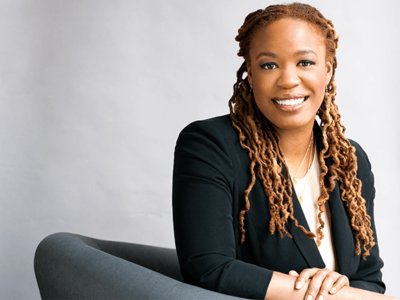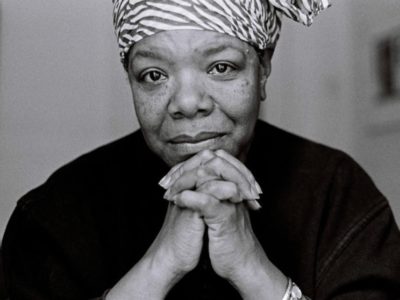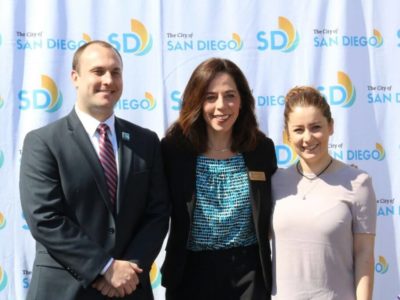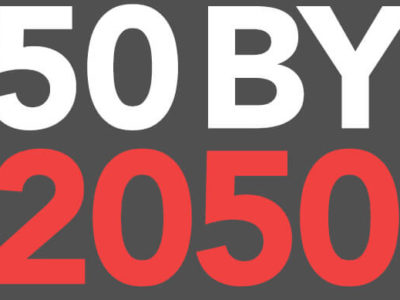Heather McGhee started at the bottom until she worked her way up to become the President of Demos. Demos, a public policy organization, seeks to build a country where everyone has an equal chance in the democracy and the economy. As president, McGhee makes it her mission to be a voice and enact change for working class families and marginalized people. She has helped pass laws that shape the future of the political system. And it all started with her first entry-level job out of college at Demos.
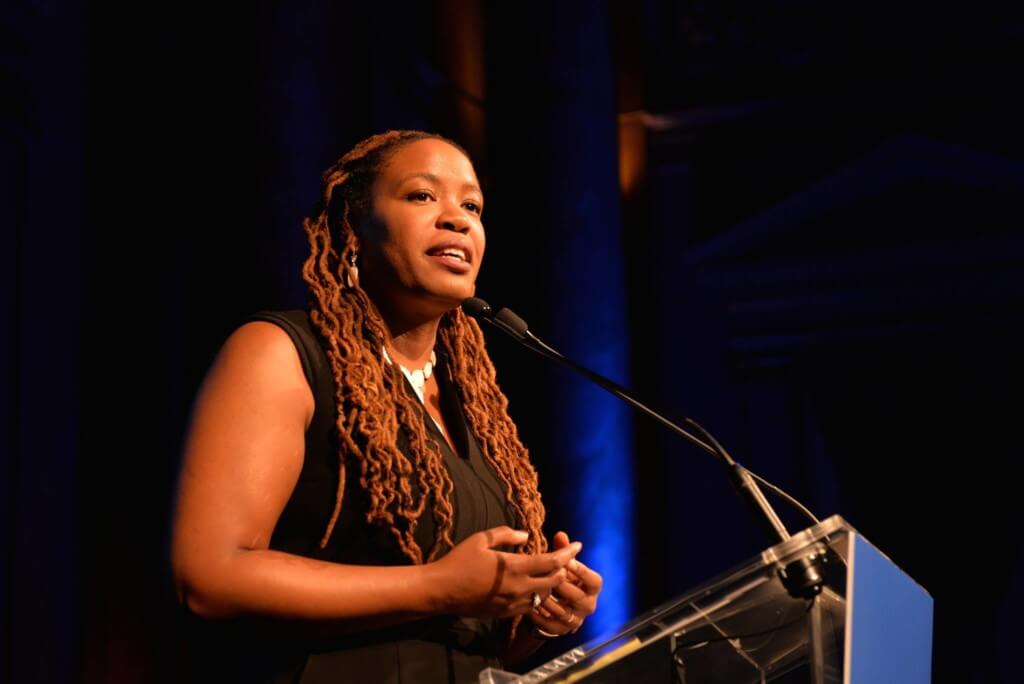
CAREER TIMELINE
2001: Graduated from Yale University with a B.A. in American Studies
2008: Became John Edwards’ Deputy Policy Director in charge of Domestic and Economic Policy
2009: Graduated from the University of California, Berkeley – School of Law
2009: Co-chaired a task force within Americans for Financial Reform
2012: Became Demos – Vice President of Policy & Outreach
2014: President of Demos: Ideas & Action
Q&A WITH POWERFUL WOMAN LEADER HEATHER MCGHEE
Q: At College Magazine we’re working together with EMILY’s List, Emerge America, Human Rights Campaign, Higher Heights, She Should Run, Running Start, Victory Fund and IGNITE on an initiative to fight for equal representation in congress called “50 by 2050.” What are your thoughts on the goal of achieving 50% of women in Congress by 2050?
A: Right now, we have a problem where the most pressing concerns of ordinary people, young people and families are simply not being heard in the halls of power at the state and federal level. A big part of the reason for that is that we don’t have a reflective democracy. There are 11 major cities that have zero women in office, the United States is 70 percent women and people of color but Congress is 71 percent white men. It’s time for women, including young women, to break through the barriers and become the leaders in government that they already are in their communities and schools.
Q: What inspired you to get involved in the political sphere?
A: I grew up on the south side of Chicago at a time when manufacturing jobs were leaving and the safety net was being shredded. I really wanted to look upstream to find out what were the decisions being made by powerful people that were impacting families in my neighborhood. I was lucky enough to have an internship in high school where I learned to read and write about public policy. I was a geek about history so I was very interested to learn about the history of the Civil Rights movement and the women’s movement in times when ordinary people were able to make extraordinary change.
Q: Can you speak a little bit about your journey on becoming President of Demos?
A: I became president of Demos in 2014 after having worked here since I was 22 years old. I started out in an entry-level position in the economic opportunity program and worked my way up. The only break I took was to go to law school. While I was in law school I took a break from law school to go work on a presidential campaign.
Q: “Demos” is derived from the Greek word meaning “the people” and is the root for the word “Democracy.” Can you tell me a little about the importance of having people stay engaged and informed about our current democracy?
A: We should think of citizenship as a verb as something that people need to do in order to make the promise of self-governance a reality. There’s an entire industry that would have our government be owned and operated by the lobbyists and corporations that write the biggest checks. The only way to change that is for people to take an interest to organize, to vote, to run and to change the rules so that the strength of a citizen’s voice doesn’t depend on the size of their wallet.
Q: Do you have any current projects you’re working on that mean a lot to you?
A: We are very proud to have helped lead the coalition to pass public financing of campaigns. It’s campaign finance reform that will help address the problem of Citizens United. We did it a few years ago in Seattle, but just last month had a unanimous vote in the city council of Washington, D.C. We can have a system where citizens fund elections instead of lobbyists and wealthy people funding elections. It changes who gets to run and what issues they pay attention to once they’re in office.
Q: At College Magazine, we’re the guide to the undergraduate experience. In what ways did your college experience at Yale University prepare you for your experiences in public service?
A: I was an American studies major. As an American studies major, I learned about the political, economic and social history of this country. This helped me see how movements take shape and how different forces throughout our society help create momentum for social change. I also interned during the summer at a public policy organization. I was lucky it was paid internship; I feel that paid internships are extremely important. When I became President of Demos, I made sure that we paid our interns a living wage, so that working class students also have the opportunity to build their careers.
Q: Over the last few months in particular, we’ve seen more women running for office and getting involved in that process. How do you feel that will end up shaping the political sphere in this country?
A: We know from research that women have more power in political office. There’s more compromise and policies that make life easier for working families so they get a fair hearing. At a time of record economic inequality when most families are struggling to make ends meet, I’m hopeful that women will help reset the priorities of government at every level so that lobbyists and corporate donors are less important than the dreams and aspirations of everyday families.
Q: What’s been the most rewarding moment of your career so far?
A: The most rewarding moment of my career so far is when I sat in the signing ceremony for a bill that Demos helped pass into law. It was bill creating a new set of rules and watchdogs in government for the financial sector a year and a half after the worst financial crash since the Great Depression. It was a David- and- Goliath fight where the financial industry spent more on lobbyists everyday then the pro-reform advocates spent in a year. But we still won.
HOW TO BE A POWERFUL WOMAN LEADER
“[Volunteering] on a local campaign for city council or for the school board can be even more meaningful and you can win even more responsibilities,” said McGhee. “2018 is a year when there are record number of new people running for office, a record number of women, so I think the entire country particularly women are taking control over the idea of citizenship and recognizing that we have care out time as we do for our families and for leisure we also have to carve out civic time to volunteer, make phone calls to go to town halls. It’s a crucial part of being a citizen, which I define as someone who lives and loves this country.”
HOW TO CONTACT HEATHER MCGHEE
Follow her on Twitter.
Check out the Demos Facebook page.
Visit the Demos website.

